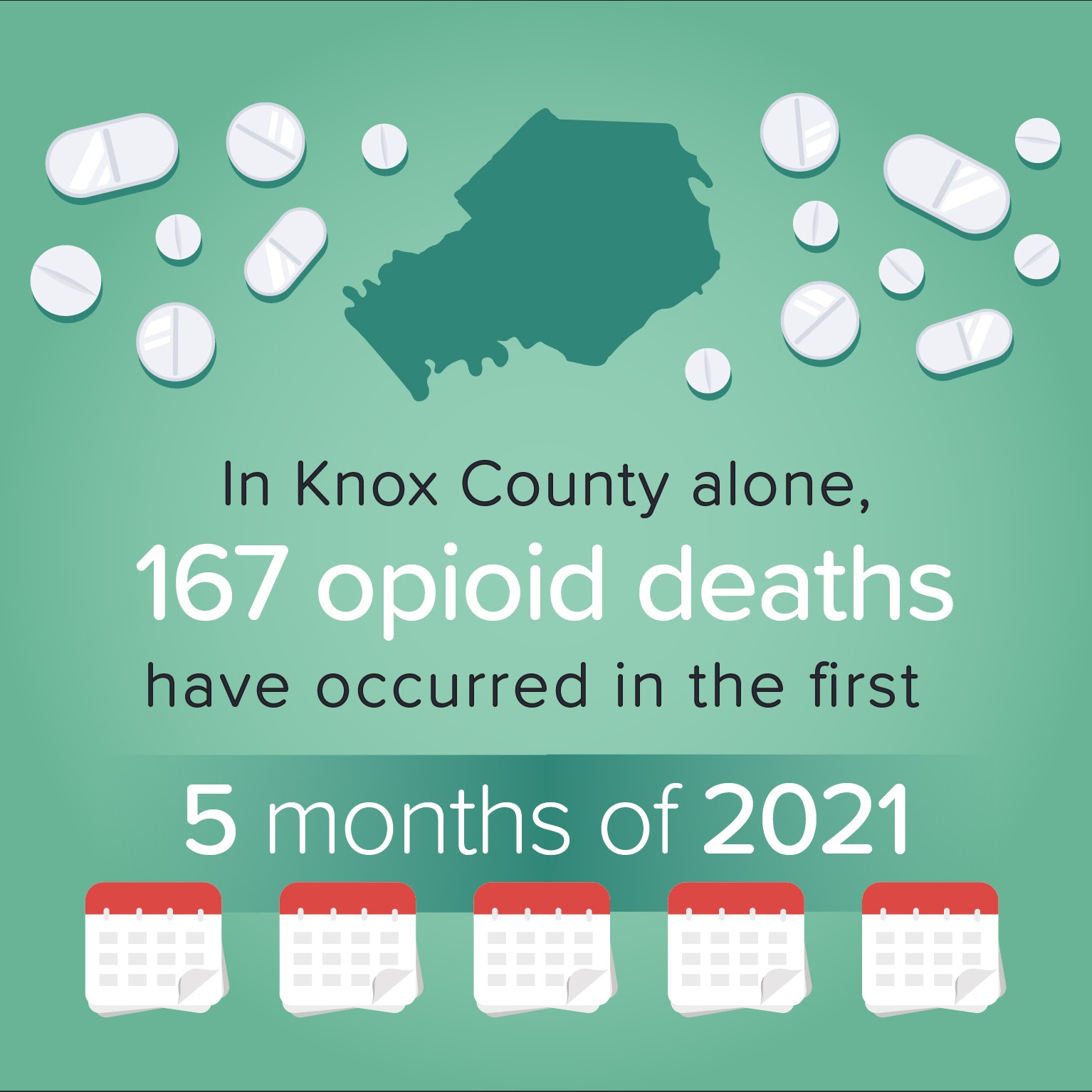
Realizing you have an opioid problem and you need life-saving treatment is a huge step. Even just realizing you want to stop the daily grind of putting all your energy toward opioids is a huge step.
Regardless of your past, there is an option for help in East Tennessee once you’ve come to accept the need for change. The option to consider is if opioid treatment with the help of buprenorphine is right for you.
When you’ve been beaten down by running around to fulfill the need for opioids and have lost control of your life, it’s time to really find an answer that can help give you your life back.
Buprenorphine can offer that. If you need to know more about it before deciding, we have it covered.
Table of Contents
The Opioid Crisis Is Still Affecting Lives
The opioid crisis is still causing problems for many in America and across the world. Research shows that “opioid use disorders affect over 16 million people worldwide, over 2.1 million in the United States.”
In East Tennessee, we continue to lose hundreds of lives a year. In Knox County alone, 167 opioid deaths have occurred in the first five months of 2021.

As the powerful hold opioids have on the lives of millions continues, there are many stepping to the plate and fighting to take their lives back with the help of medication-assisted treatment (MAT).
Specifically with buprenorphine, which is the generic name for the medication sometimes known as Suboxone®. It’s a medication used in MAT to help thousands of people with opioid use disorder begin recovery. Results have shown its success in helping many people with recovery from opioid use disorder (OUD).
What Is Treatment With Buprenorphine (Suboxone®)?
Treatment with buprenorphine (Suboxone®) is a form of MAT in which a patient receives medication to help them handle withdrawal from the opioids they’ve been misusing.
Buprenorphine is an opioid agonist. This means it will interact with your brain’s receptors in a way that’s similar to the way other opioid drugs do. It gives effects similar to those that opioids like heroin give, but to a much lesser degree.
Buprenorphine (Suboxone®) has become a popular choice in treating opioid use disorder because of its ability to help patients without giving them a significant high. The combination of buprenorphine and naloxone provides relief from cravings while also limiting the high felt.
A doctor at a treatment center will prescribe the medication in one of two forms — a tablet that is placed under the tongue or a film that is placed under the tongue.
Doctors decide dosage after meeting with the staff of a treatment center to discuss the patient’s situation including the amount of opioids they’ve been taking and other general health questions.
Can Buprenorphine (Suboxone®) Ruin My Teeth?
Since buprenorphine (Suboxone®) is taken orally and is either a tablet or film placed under the tongue, it’s common to wonder if it can damage your teeth.
Opioids can cause dry mouth and dry mouth can cause dental problems, as saliva often helps to clear the mouth of acids and other things. Since buprenorphine is a partial opioid, dry mouth can be a side effect, but it’s not as common with buprenorphine as it is with other medications or drugs.
Staying hydrated and maintaining healthy dental hygiene can help protect your teeth from erosion and decay.
Is Buprenorphine (Suboxone®) Fine If I Have Other Health Problems?
While buprenorphine (Suboxone®) is an increasingly popular option in treatment and has been found to be successful, it may not be for everyone.
For example, those with preexisting conditions may not be able to use Suboxone® and may have to take a different path in recovery.
Before beginning buprenorphine (Suboxone®), it’s important to talk with your prescriber if you have any pre-existing medical conditions and/or medical concerns.
Can I Take Other Medicines With buprenorphine (Suboxone®)?
When it comes to possible buprenorphine (Suboxone®) interactions, a consultation with your doctor is a must. In general, buprenorphine (Suboxone®) does not cause issues with everyday medications, but it’s always better to be safe than sorry.
By checking with a doctor, those with prescription medicines in the category of benzodiazepines (benzos) will know there are frequent interactions. Benzodiazepines are most commonly known by brand names like Xanax and Klonopin.
By combining benzos and buprenorphine (Suboxone®), patients may experience respiratory distress (trouble breathing), coma, or death.
Combining substances is the most common cause of overdose and death.

As mentioned briefly earlier, mixing alcohol and buprenorphine (Suboxone®) can be incredibly dangerous. Alcohol works similarly to benzos as a depressant on our nervous systems, so drinking with Suboxone® can suppress breathing to the point of failure.
There is also danger in mixing buprenorphine (Suboxone®) with drugs that cause opposing effects on the body. For example, if someone does cocaine along with buprenorphine (Suboxone®), they will feel two things.
The first thing felt is opioid withdrawal symptoms coming through because of cocaine’s ability to lessen the strength of buprenorphine (Suboxone®) in the system. Adversely, the second thing felt is a lack of power from the cocaine dose.
Because buprenorphine (Suboxone®) will lessen the effectiveness of cocaine, a person is put at higher risk of overdosing on cocaine.
If you have an issue with polysubstance misuse, a condition in which a person is misusing more than one substance, it’s even more important to seek care today.
Treatment With buprenorphine (Suboxone®) In East Tennessee
Suboxone® treatment works. Recovery from opioid use disorder is possible, and it can be done in a judgment-free zone that does not look down on you for your past drug use.
ReVIDA Recovery®, with locations in Knoxville and Johnson City, works with everyone in East Tennessee to curb the losses our community feels from the opioid crisis.
The goal of ReVIDA Recovery® is to get to those most at risk, including those who rely on the use of TennCare Health Insurance, to save their lives and get them on the path to a healthier life.
To do this, we offer MAT and counseling services in a quick and efficient manner. Those in our outpatient program will speak with a doctor, patient care coordinator, and a therapist. These meetings can sometimes be done within an hour, and will rarely take more than two hours.
Getting treatment is the most important part of this. We know everyone has a busy life to maintain, and the quick but still high-quality care we provide can make all the difference for someone.

We challenge ourselves daily to earn the trust of those who put their faith in us. We’ve been a cornerstone of the Knox County and Tri-Cities area for many years now, and we’ve seen residents from all different walks of life. With each person, we’re happy they’ve chosen to work with us.
Our judgment-free, evidence-based approach to treatment is rooted in our belief that MAT with Suboxone® is a safe and effective path for anyone looking for relief from opioid addiction or dependence.
Call Today To Quickly Begin The Process
If you’ve reached the point of acceptance that you need a change from the turmoil that your opioid use has caused, we’re here to help you, beginning today.
You can call us today at (844) 972-4673. to begin the journey to a healthier and happier life.
FAQs:
Does buprenorphine (Suboxone®) ruin your teeth?
Since buprenorphine (Suboxone®) is taken orally and is either a tablet or film placed under the tongue, it’s common to wonder if it can damage your teeth.
Opioids commonly cause dry mouth. Dry mouth can cause dental problems, as saliva often helps to clear the mouth of acids and other things.
Since Suboxone® is a partial opioid, dry mouth can be a symptom, but it’s not as common as it is with other drugs.
Staying hydrated and maintaining healthy dental hygiene can help protect your teeth from erosion and decay.
Why is buprenorphine (Suboxone®) making me sick?
While buprenorphine (Suboxone®) blocks most of the withdrawal symptoms you can face, it can still leave you feeling slightly ill.
As it’s a partial opioid blocker, it has lesser effects than full opioid agonists. Because of this, some withdrawal symptoms can occur.
If the sickness is persistent, speak with your prescriber about your symptoms.
What are the side effects of buprenorphine?
Like all other drugs, there are possible side effects. Speak with your prescriber about the side effects that could impact you.








